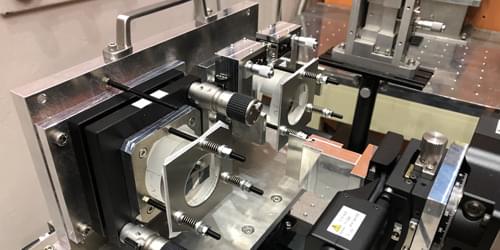Researchers have demonstrated a mirror-based neutron interferometer that should be more sensitive to beyond-standard-model particle interactions than previous instruments.
Some theories of beyond-standard-model physics predict that neutrons passing close to an atomic nucleus will experience exotic interactions with the particles in that nucleus. To try to spot these interactions, physicists use a neutron interferometer, a device that splits and then recombines a neutron beam. If a currently unknown particle interaction affects one branch of the split beam as it passes through a material, the signature should show up in the interference pattern that forms when the two beams come back together. Takuhiro Fujiie at Nagoya University, Japan, and colleagues have now demonstrated a new neutron interferometer that promises greater sensitivity to beyond-standard-model physics [1].
In a conventional neutron interferometer, components made of crystalline silicon manipulate the neutron beam. Such interferometers only work for neutron beams that have wavelengths between 0.19 and 0.44 nm because of the spacings between crystalline silicon’s atoms. In the new instrument, neutron mirrors composed of alternating layers of nickel and titanium manipulate the neutron beam. The spacing of the layers determines the wavelength reflected and can be tuned to make mirrors that work for a wider range of neutron-beam wavelengths—including longer wavelengths that offer greater measurement sensitivity.










Comments are closed.